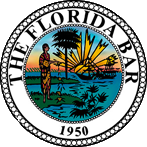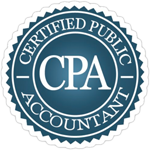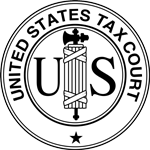- Free Consultation: (772) 418-0949 Tap Here to Call Us
IRS Currently Not Collectible Status May Be a Viable Option for You, If You Cannot Afford Your Tax Liability

Struggling to pay your taxes? Can’t afford to make ends meet? Will Harmon, ESQ, CPA, IRS EA, can help you apply for hardship status with the IRS. To learn more, contact Harmon Tax Resolution, LLC today.
How to Apply for Uncollectible Status
If you can prove that you cannot pay your tax liability and living expenses, you may be eligible for tax relief through the IRS’s Currently Uncollectible Status option. If approved, to avoid causing severe economic hardship, the IRS will cease making you pay your tax bill. The IRS tax payment reprieve will continue if your financial situation remains the same.
The IRS requires completing Form 433-F (Collection Information Statement) to establish your financial hardship. Form 433-F is used to obtain current financial information necessary for determining how a wage earner or self-employed individual can satisfy an outstanding tax liability. This form enables the IRS to ascertain your financial hardship position by reviewing all the assets, liabilities, income, and expenses, which are listed in-depth on the form.
Often the IRS will also request that you fill out IRS Form 433-A (individuals) or IRS Form 433-B (Businesses). The 433-A or B is a collection information statement. You need to be able to provide supporting documentation for the information listed within this form.
IRS Uses Certain Financial Criteria to Determine If Your Situation Warrants Uncollectible Status
Sadly, many have financial obligations for items and amounts that fall outside the range or expense type the IRS considers acceptable for determining eligibility for some of its tax relief programs.
The IRS uses national and local standards to determine living expense caps based on household size. These standards cover food, housing, transportation, healthcare, and other necessities. Any expenditures listed over the allowable standards are generally not accepted unless they are essential for someone’s welfare. For example, there may be an amount over the allowable due to a medical condition which the IRS may include. Ensuring one maximizes their position is where having a tax attorney-CPA comes in. They have lots of experience in advocating on a client’s behalf with the IRS and ensuring all information coincides with the IRS rules enabling you to get the largest deductions. Having a dually licensed attorney is beneficial in cases like this. You get an attorney’s capability to advocate within the allowable legal framework and the financial expertise of a CPA to ensure accurate, correct, and complete financial positioning. Will Harmon from Harmon Tax Resolution, LLC is a multi-licensed Florida Attorney-CPA-IRS Enrolled Agent. Call him for a free consultation to see how your situation may qualify for Current Non-Collectible Status.
Must Establish Current Tax Compliance with IRS for Currently Not Collectible Status Consideration
The IRS will want to verify that you have taken proper action for current and future tax compliance before the IRS will place your tax account into Currently Not Collectible (CNC) status.
For employer withholdings, it will need to be demonstrated that you have an appropriate amount withheld for your level of earnings. You may have to change this for IRS to approve your CNC status. While under CNC status, you will have to maintain a level of withholdings to keep you from owing taxes.
If self-employment earnings are the leading cause for your tax liability, the IRS may have you submit a year’s worth of estimated quarterly tax payments before it is willing to grant you CNC status. While under CNC status, you will have to make timely and appropriate quarterly estimated payments.
While You Are in CNC status, here is What to Expect
If your financial situation remains to where it would be a hardship for you to pay living expenditures and also the tax debt, the IRS will continue to grant CNC status to your situation. The IRS evaluates your financial situation usually every two years.
Getting CNC prevents you from making payments on the past due tax balance. However, it does not stop interest and penalties associated with this past-due tax balance from accruing. Payments are not required on these amounts unless you come out of CNC status.
If you are due any tax refunds, the IRS will hold onto and apply them toward your tax debt. An IRS stipulation of CNC status requires you to avoid sustaining additional tax debt resulting from underpayment of employment tax withholdings or estimated quarterly payments. Having a tax professional help you with this could be beneficial.
Being in CNC status does not prohibit the IRS from filing a Notice of Federal Tax Lien against your assets. For more information about IRS Tax Liens, please refer to this blog. Even though Tax Liens could be filed, the IRS usually will not invoke levy seizures of your assets. Although the IRS may contact the State Department to have your passport revoked, the IRS generally does not for those under CNC status.
How Long Does CNC status Last
The IRS uses a Collection Statute Expiration Date (CSED), the amount of time the IRS must legally collect a tax balance. The CSED is usually ten years from when the IRS assessed the tax. The CNC lasts if the CSED is in place. There could be events that extend the CSED, such as an Offer In Compromise or Bankruptcy filing. These types of events toll the statute while the IRS is considering them. The IRS will also add some time to the CSED once a determination has been made. It is essential to know precisely what this is. Sometimes, the IRS will solicit the taxpayer via a waiver to extend the CSED. Speaking to a tax attorney before agreeing to do that is a good idea.
What Happens When the IRS Rejects Your CNC Application
You can appeal the CNC decision and any collection actions taken against you by the IRS. Having a tax attorney to help would be ideal.
Pros and Cons of IRS Currently Not Collectible Status
Before deciding to pursue this form of tax relief, it is essential to understand the pros and cons. One of the pros is that you can obtain immediate tax relief without paying the tax debt. This includes a stoppage of IRS levy activities such as wage garnishment or seizing your bank account funds until the tax debt is paid. However, on the con side, IRS can still implement federal tax liens on your home or property in addition to future acquisition while the IRS tax lien is in effect. While an IRS tax lien is in place on your property, and if you were to sell it, available proceeds from the sale will go towards paying off back taxes, interest, and penalties. In addition, CNC status does not prohibit the IRS from accruing interest and penalties toward the tax debt. These can add up substantially. For more information about liens, please refer to this blog, “Important Information About IRS Tax Liens.”
Another CNC con is that CNC may not be a permanent solution to your tax situation. The IRS typically has ten years to collect the tax once assessed. The IRS will continually observe your financial situation and secure reports from external parties such as financial institutions, vendors, and employers. You will no longer be eligible for CNC if the IRS determines your income has increased. If you are on a fixed income (Social Security, Disability, Pension, etc.), this financial observation will not apply. If the IRS halts your CNC status, collections will continue, which could involve aggressive tactics, such as levies and garnishments to be used to pay the tax debt.
Conversely, another Pro for CNC is that while you are in CNC status, the 10-year statute of limitations on collections continues to run. This running of the collection statute means that the IRS has less time to collect from you even if your situation improves, resulting in revoking your CNC status. In addition, because the collection statute is lower, you may now be eligible for other tax resolution remedies. If your status remains constant while in CNC, you will run out the IRS 10-year Collection Expiration Date statute, resulting in the tax debt getting wiped off completely.
Seek Professional Assistance When Applying for Currently Not Collectible Status
If you are at a financial breaking point where you can’t pay your living cost and tax debt, it may be worthwhile to investigate whether CNC status is ideal for you. Since the IRS can employ aggressive collection tactics, which will only significantly worsen the situation, a tax resolution action must be needed. A seasoned, experienced tax professional such as a multi-licensed Tax attorney-CPA-IR EA, Will Harmon of Harmon Tax Resolution, LLC, can guide you through every step to ensure you get the best outcome for your situation. The initial consultation is free. You can take control of your situation. Call today so that you can sleep well tonight!











